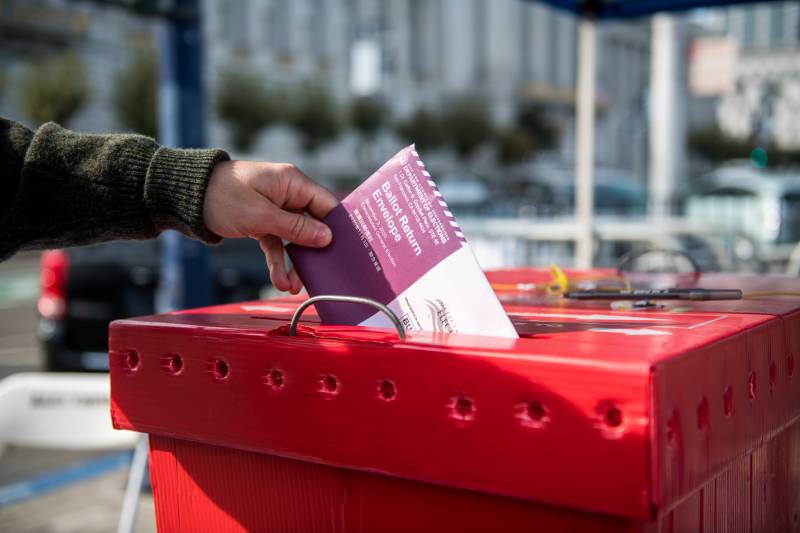Election Day is approaching, but many Californians have already received and returned their mail-in ballots. Are you one of them? Or are you still puzzling over how to vote on the state's seven propositions? Two KQED podcasts — The Bay and Bay Curious — have teamed up with the newsroom to put together a series we call Prop. Fest. Each episode takes a nuanced look at the propositions to help you make the most informed choice.
Grab your sample ballot, a pen and a pair of headphones and listen to our Prop. Fest playlist on Spotify.
California has strong abortion access laws, but Prop. 1 would make abortion constitutional
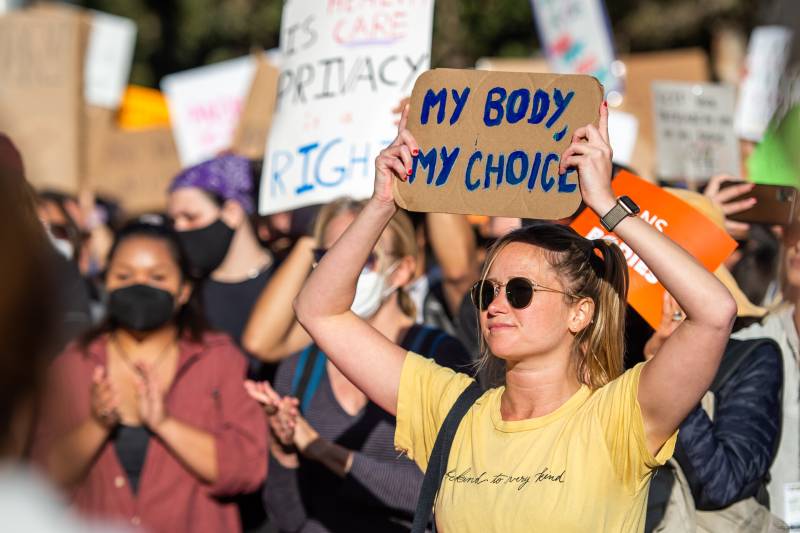
Abortion is already a protected right in California, but Proposition 1 would take it a step further, enshrining the right to reproductive freedom in the state's constitution. That includes the right to abortion and contraception, as well as the right to refuse contraception. Supporters say Prop. 1 ensures that if the political winds in California change someday, reproductive rights won't be going anywhere. Opponents say it's an unnecessary law and worry about a word left out of the proposition: viability.
Props. 26 and 27 offer different ways California could allow sports betting
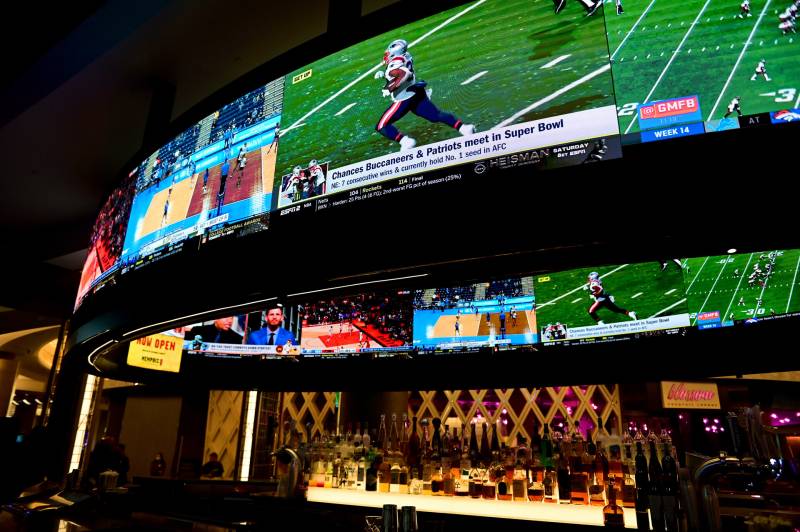
There are two gambling propositions on the ballot this year, both related to sports betting. It's currently illegal everywhere in California to bet on sports. But other kinds of gambling are legal on tribal land. Prop. 26 would make sports betting legal on tribal land only, while Prop. 27 would legalize online sports betting everywhere in the state.
Prop. 28 would provide dedicated arts education funding
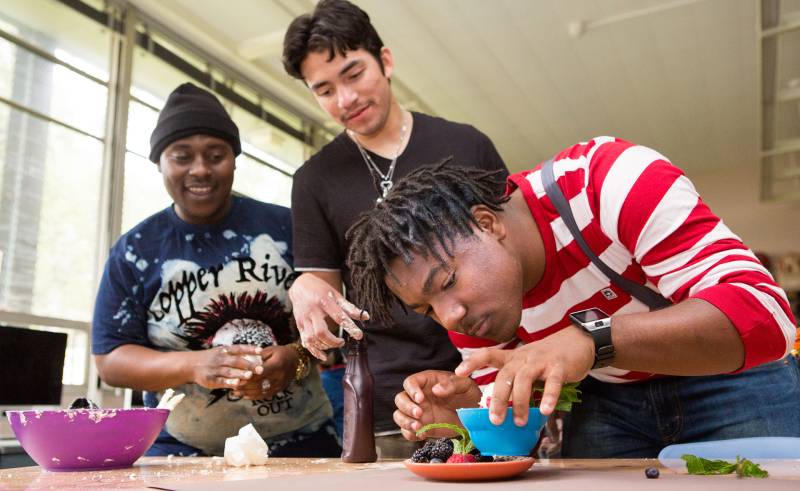
Worried about a lack of arts education in public schools? Proposition 28 would provide a dedicated source of funding for music and visual arts from the general fund. If this passes, roughly $1 billion annually would be earmarked in the state education budget for keeping the arts in K-12 classrooms.
Prop. 29 would change how dialysis is regulated in California

Does a proposition to require dialysis clinics to have more medical staff on-site sound familiar? That's because very similar propositions were on the 2018 and 2020 ballots, put there by the same organization.
Prop. 30 asks if the richest Californians should be taxed more to pay for green infrastructure
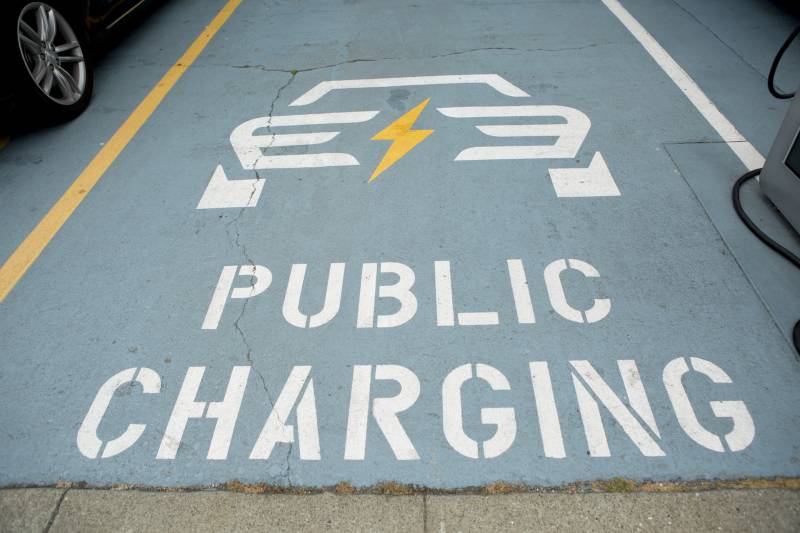
Proposition 30 would increase taxes on the wealthiest residents to build more electric car charging stations and fund incentives for electric car buyers. Creating more green infrastructure would seem to align with what most Californians want. But this proposition is dividing some Democrats; Gov. Gavin Newsom, a proponent of electric vehicles, has vocally opposed it.
Prop. 31 asks whether California should ban the sale of flavored tobacco
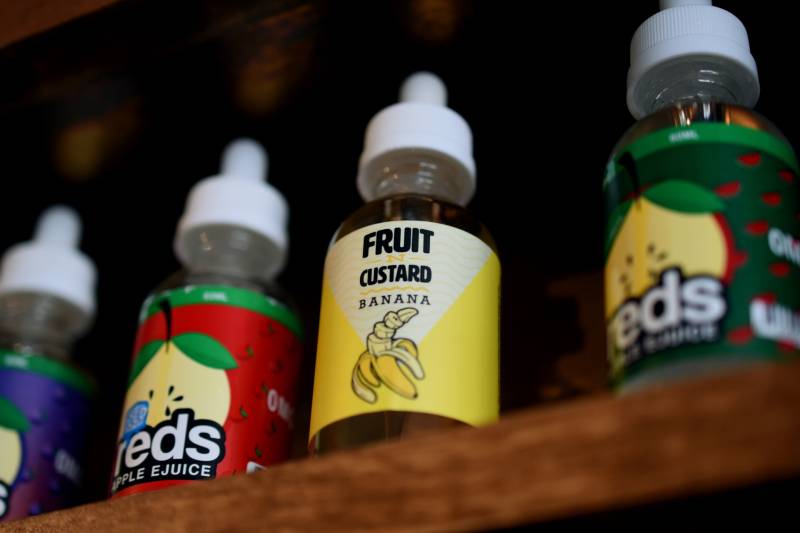
Proposition 31 is really a referendum on a law passed in 2020 that banned the sale of flavored tobacco at retail stores in California. The tobacco companies were able to gather enough signatures to put the issue on the ballot before the new law took effect.
